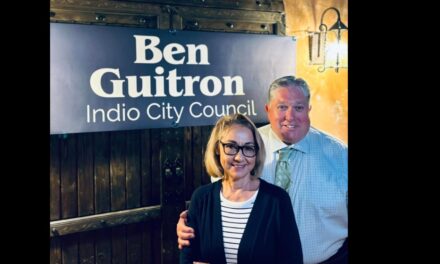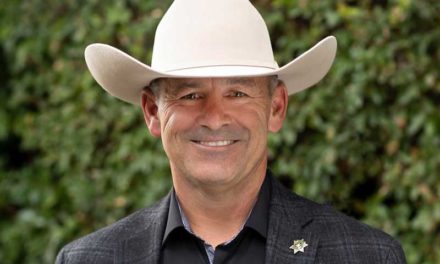Latinos have filed papers to seek City Council seats in Indio and Cathedral City after both communities were forced move to districts. But a person’s skin color should not be a qualifier in any election, according to one mayor.
Another mayor said his community has long had Latinos serving on the City Council and did not need district elections to accomplish it.
One Latino qualified to be on the ballot in Indio; at least five have qualified in Cathedral City.
Indio Mayor Michael H. Wilson said he would encourage anyone who wishes to seek an elected position regardless or skin color or race.
“Today, it seems with hyper-partisanship that the measuring stick used to identify candidates is the color of skin. That’s nonsense. America was made great by accepting all nationalities, creed, and color,” Wilson told Uken Report. “What determines a good candidate is: Are they qualified? Have they prepared themselves for the position they are seeking? Is the candidate prepared to do what it takes to serve in the position? Some candidates are pushed by others or pushed by partisanship and activism to run for office.”
In a City Council race and among City Council candidates, this is a huge mistake, Wilson said. City Council is a non-partisan office. It’s about community first and doing what’s best for the community, not necessarily your own personal opinions and viewpoints.
In Indio’s current circumstances, we were forced into going away from at-large elections to district-based elections based on litigation using the California Voting Rights Act, Wilson said.
“Unfortunately, not every citizen will get to vote for the entire City Council, which is a detriment to the community. Where in Indio we are all one great city (with) great diverse people who get along, we’re now divided into five districts and that’s a loss for everyone. The perfect candidate to me is the best candidate for the office with the most experience, not what skin color you may have.”
If it’s about skin color, Cathedral City Mayor Stan Henry quickly pointed out that the City Council already has a Latino councilmember in John Aguilar. He also highlighted the fact that City Council has had a Latino on the City Council for the past 25-plus years. First, there was Joe Vlasaquez, then the late Chuck Vasquez, and now Aguilar.
“I think with the districts, it now gives Latinos and others the ability to seek a council office because of the reduced cost and just having to campaign in an area they live, knowing more people,” Henry told Uken Report. “I think that with one of the districts being mostly Hispanic, you are seeing that all the candidates are Latino. This is what the potential lawsuit wanted to accomplish.”
Both Indio and Cathedral City will vote by districts in November. It is the first time since the threat of litigation.
The move to district elections was prompted by letters community leaders received alleging the city elections could be racially polarizing. The letters came from an attorney representing the Southwest Voter Registration Education Project (SVREP) alleging that each city was in violation of the California Voting Rights Act due to its process of at-large elections instead of district elections to elect members of the City Council. The letter requested the cities switch to at-large elections or face judicial action. Opponents say it was a move all based on skin color.
The letters also alleged that the at-large election process has diminished the ability of Latino residents to impact elections in each community and has resulted in racially polarized voting.
SVREP did not return two messages to their office for comment.
Most California cities with City Councils elected at-large, upon receipt of a Voting Rights violation notice, have chosen to voluntarily switch to districts. A few cities have chosen to fight this request. In one of the significant cases, the city of Palmdale, in 2012, lost and was ordered to switch to district elections. Palmdale paid millions in legal fees to plaintiff and defense counsel and had their districts drawn not by their City Council after input from their residents, but by plaintiff’s counsel. Recent changes in the law make it even more difficult to win these lawsuits than it was in 2012.
The Palm Springs City Council received a similar letter in March and chose not to gamble on a costly lawsuit it could lose.
Palm Springs Unified School Board and College of the Desert Board of Trustees have also moved to district elections.







